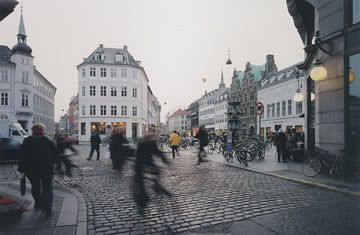jeudi, novembre 22, 2007
I'm letting go, so give me one more chance

I just put this in my Google Shared Items (on the right if you're on my page, or here if you want to get the feed), but I have to put in a stronger recommendation for it. I thought it was a pretty fascinating article, about the social / economic structure in Denmark. Here are a few paragraphs, but read the whole article if you have the chance.

I just put this in my Google Shared Items (on the right if you're on my page, or here if you want to get the feed), but I have to put in a stronger recommendation for it. I thought it was a pretty fascinating article, about the social / economic structure in Denmark. Here are a few paragraphs, but read the whole article if you have the chance.
Last year Danish toymaker Lego announced plans to outsource most of its manufacturing to Eastern Europe and Mexico. Of 1,200 blue collar jobs at Lego's headquarters in the town of Billund, only about 300 would remain.
You might think this would make union leaders at Lego hopping mad. You'd be wrong. "We thought it was the best way to keep as many workers' places in Denmark as possible," maintenance man and union shop steward Poul Erik Pedersen tells me. "We aren't against the management. We want to make sure that they make money and we make money." Then, unprompted, he takes the argument a step further: "There are some good things about outsourcing. Where the jobs go, the standard of living is growing, and then they can afford to buy more Legos or other things from the West."
The way Denmark has achieved its success has made it a darling of European social democrats and American liberals, and the country has been overrun lately with visiting journalists, academics and politicians looking for insights. One of the things a visitor discovers, though, is that Denmark's size and homogeneity--5.4 million people, of whom all but 478,000 are of Danish ancestry--are crucial to how the economy works. "We've been one small nation for 1,000 years," says Hans Skov Christensen, who as director general of the Confederation of Danish Industries negotiates the nationwide bargaining agreements between management and labor every few years. "We're basically a clan."
Informality, disputation and disrespect for authority are core Danish traits. But there are limits, and Danes seem to know in their bones just how far they can push them. The result is an economy that looks like something out of an enlightened management textbook. There are a few clear goals and lots of leeway to achieve them. In one fascinating study, two American sociologists found that Danish line workers have nearly as much job autonomy as supervisors do in the U.S., while supervisors in Denmark have about as much autonomy as upper managers in the U.S.

